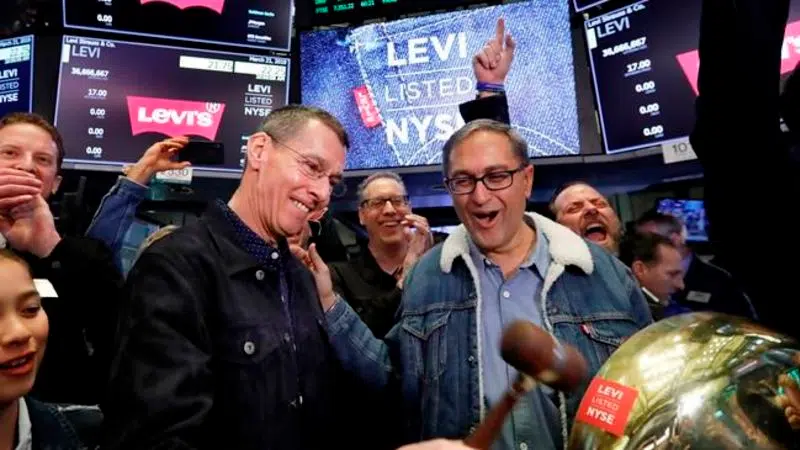
Levi’s soars in return to public markets
NEW YORK — Levi Strauss & Co.’s return to the public markets got an enthusiastic reception from investors who believe the iconic brand is ready for a comeback — and still has a lot more room to grow.
The stock, which is listed under the ticker “LEVI,” opened for trading Thursday at $22.22, above the $17 offering price and blowing past the originally expected range of $14 to $16. As of Thursday’s close, shares popped nearly 32 per cent, closing at $22.41 per share. That gave Levi’s a market value of $8.64 billion, according to FactSet.
Levi’s seems to have successfully convinced investors, at least for now, that it has a lot of opportunities to expand beyond just jeans, from tops to bolstering its women’s business. In its prospectus, the company says it plans to use the proceeds from the public offering to expand more aggressively into China, India and Brazil and also build out more retail stores, which as of late last year totalled 824.


